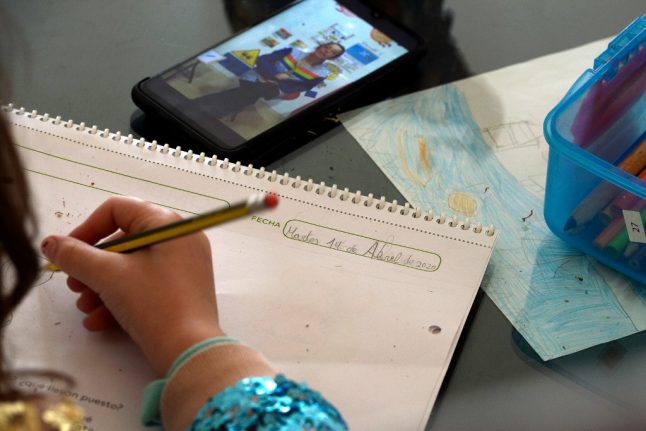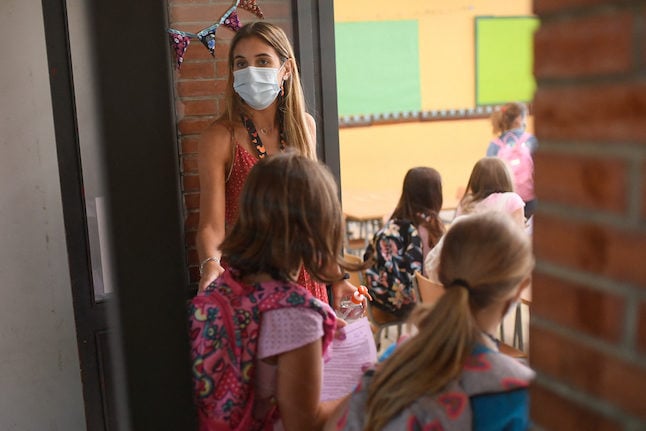All educational establishments in Spain have been shuttered since mid-March when the government imposed a national lockdown to slow the spread of the virus that has now killed more than 18,500 people throughout the country.
With similar lockdowns across the globe keeping an estimated 850 million young people out of school, it has created an “unprecedented challenge” for governments and educators, the UN has said, with authorities now mulling the fate of the interrupted school year.
In a televised press conference, Spain's Education Minister Isabel Celaa said no child would fail the year as a result of the crisis, and that authorities would provide voluntary catch-up programmes over the summer.
“No child will fail the school year because of COVID-19,” she said, hailing the “patience and immense efforts” being made by children, their families and teaching staff in the face of an “unprecedented challenge”.
She said the school year would not run beyond June, when it normally ends and that during the summer break students who need extra help can take classes.
Education authorities are planning to hire extra teachers in order to roll out these summer courses, she said.
“Repeating the school year will be a very exceptional measure which will have to be based on a solid and very well-argued case,” Celaa insisted.
Students would continue studying from home during the third and final term, she said, without mentioning any possible date when schools would reopen.
The announcement came as Spain prepared to extend its month-long lockdown by a fresh two-week period even though officials have said the epidemic appears to have peaked with the rate of deaths and infections slowing.
Unlike in other countries, children in Spain are not allowed to leave the house, with people only allowed out to buy food, medicines or for a medical emergency, although those with dogs are allowed out briefly to attend to the animal's basic needs.
READ ALSO:



 Please whitelist us to continue reading.
Please whitelist us to continue reading.
Member comments